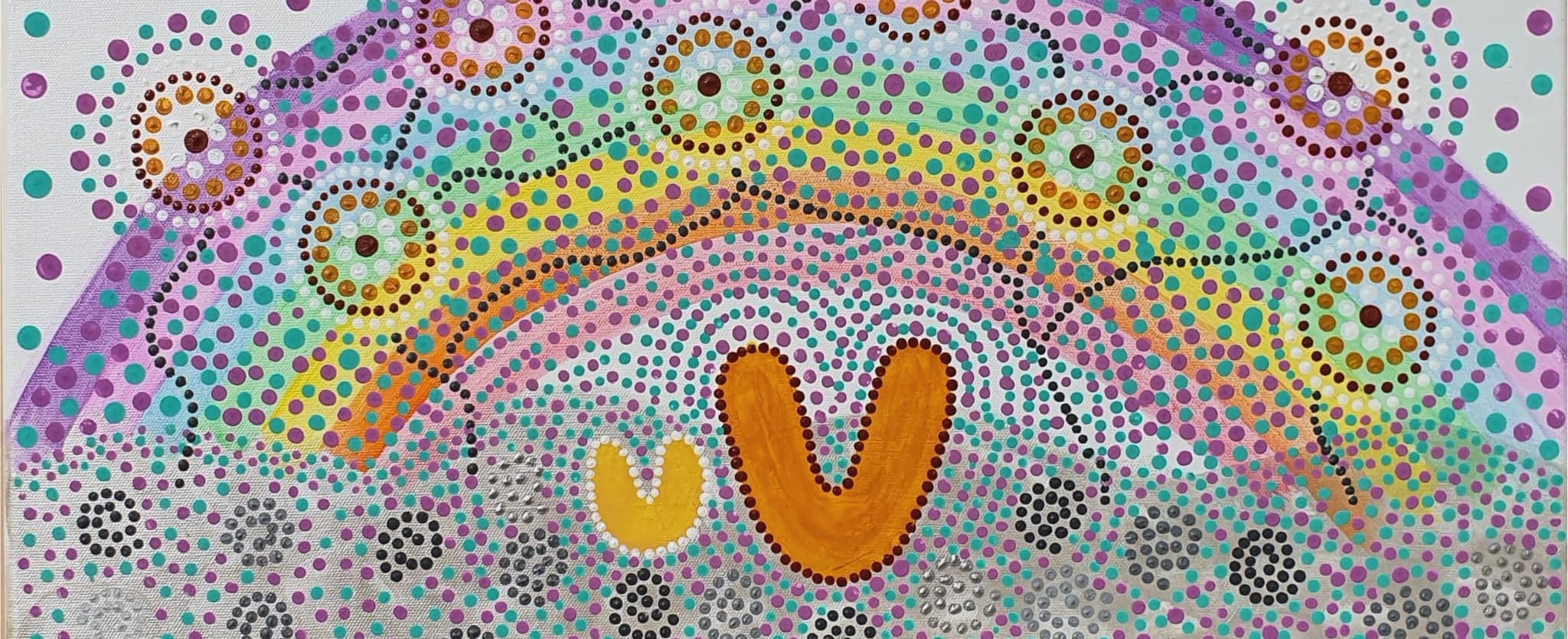Given every pregnancy experience is very much individual and every birth has its own story, there is no right and wrong answer when it comes to the psychological toll these experiences may have on the birthing parent or their partner.
How long does it take to mentally recover from having a baby?
The emotional roller coaster of giving birth and adjusting to parenthood is different for everyone. Family and friends will often share their experiences and provide advice, however it’s important to be mindful of your own mental health symptoms.
Some parents may have experienced pregnancy complications which induce worry and fear whilst others may have had a smoother journey.
Birth trauma is more widely acknowledged these days and further resources are being funded to support parents manage the distress experienced during or after childbirth. It is estimated that 1 in 3 women who give birth may experience birth trauma. The Australian Birth Trauma Association offers many resources for birth parents and their partners who have experienced birth trauma.
Given the many variables present during pregnancy and post birth, there is no definitive answer regarding the psychological recovery of giving birth. What is known however, is that with the access of supports earlier, the severity of long term psychological distress is significantly reduced.

Baby blues or postpartum depression?
As a birthing parent, your body has gone through an incredible experience. Whether your birth was lightning fast, prolonged, natural or emergency, the postpartum period will be a time of recovery.
Following birth your estrogen and progesterone hormone levels will decrease, resulting in the symptoms stated below. It’s likely you will also begin to experience lack of sleep which further impacts our mood.
Baby blues often sets in 2-3 days after giving birth and usually resolves within a week. Up to 80% of birthing women are likely to experience baby blues. A birth parent may feel teary, anxious, irritable and are likely to experience mood swings. If you feel that your symptoms are not resolving after a week, this may be an indicator that a perinatal mental health condition such as anxiety or depression is emerging.
Key Highlight
PPD symptoms and risk factors
Postpartum depression symptoms are different for everyone. The most common are:
- Feeling sad and frequently crying
- Difficulty concentrating and decision making
- Isolating self from family, friends and supports
- Fatigue and lack of motivation
- Eating more or less than usual
- Little or no joy in daily activities
- Thoughts of harm, death or suicidal thoughts
- Trouble sleeping
Some women have additional vulnerabilities that increase their chances of developing depression or anxiety in the perinatal period, including:
- Personal or family history of anxiety or depression
- Experienced antenatal depression earlier in pregnancy
- Limited support practically and emotionally
- Experienced a traumatic birth or have a baby with additional health needs
- Have current or previous issues with drugs or alcohol
- Are experiencing stressful life events such as a recent house move, relationship breakdown, loss of a loved one or financial stress
- Are unwilling to talk about their feelings and seek support groups
- Reside in a household with family violence and controlling behaviour
- Pre-existing mental health problems or prior clinical depression diagnosis
- Exposure to domestic violence
Postpartum psychosis
Postpartum psychosis is a serious but treatable mental health condition and is very rare. It can begin within weeks of childbirth. Symptoms are varied and may include:
- Confusion and disorientation
- Impaired concentration
- Variable mood
- Insomnia
- Delusions and paranoia
- Hallucinations
- Panic attacks
- Thoughts or plans to harm yourself or your baby
If you suspect you or a loved one may be experiencing perinatal psychosis, it is strongly recommended you seek immediate support through a GP, one of the helplines listed at the end of this article or your local hospital emergency department.
Professional medical advice
Diagnosis of a perinatal mental health condition can be made by your GP. Your healthcare professional will talk to you about how you have been feeling, your symptoms and current health and will likely administer a questionnaire called the Edinburgh Postnatal Depression Scale (EPDS) or K10. Following this, it is important to discuss a treatment plan.
Your GP may provide you with a Mental Health Care Plan which if eligible will provide you with Medicare rebates for psychology sessions.

When postpartum depression goes undiagnosed
It is possible that without diagnosis and treatment, the symptoms of a perinatal mental health condition will continue and may increase. It is common during early parenting to put your own needs aside to focus on your baby, but it is important to remember self care is a necessity, not a luxury. Some symptoms of perinatal mental health can significantly impact daily functioning and may make simple tasks difficult.
How long does postpartum depression last?
There is no definite answer to how long postpartum depression lasts. Postpartum depression and anxiety can emerge anywhere from weeks to months post birth therefore the experience is different for everyone. Untreated depression will likely result in your symptoms impacting you longer.
It’s estimated that 1 in 5 mums and 1 in 10 dads will experience postpartum depression (PPD) after the birth of their baby. So, if you’re feeling low, you’re certainly not alone. The good news is, with the right support, most women will start to feel physically and mentally better within a few weeks as the postpartum period lapses. However, for some women, postnatal depression can emerge and last for much longer.
Key Highlight
Why it might last longer for you
For some with additional risk factors, postpartum depression may last longer even with treatment. These risk factors include:
- Traumatic birth or medical complications due to pregnancy
- Limited support from your partner, family or friends
- Breastfeeding difficulties
- Significant life stressors during the postnatal period e.g. move house, loss of employment
- A history of postnatal depression during or after a previous pregnancy
With the right treatment and accessing support early, the severity of postpartum depression is likely reduced.
A mother’s relationship with her baby during postpartum depression
When a mother gives birth, we often hear of the instant connection and overwhelming love towards her child. However there are also many women that struggle to bond with their baby and feel guilty that they have not developed an instant attachment.
For women with a perinatal mental health condition, it can often be difficult to hear your baby cry and settle them, maintain eye contact with your baby and find the motivation to tend to their needs such as feeds, nappy changes and tummy time. If this is the case, it’s time to build your village of supports around you and explore assessment and treatment options.
Remember, bonding and attachment can develop over time. Most parents who struggle at the beginning, go on to have strong, nurturing relationships with their babies.

Fathers can also develop postpartum depression and anxiety
We often associate postpartum depression and anxiety with a birthing parent, however fathers and non-birthing parents can develop a perinatal mental health condition. 1 in 10 men experience paternal depression in the perinatal period.
Non-birth parents are also going through a life changing period and are navigating the challenges of learning to be a parent. From unpleasant nappy changes, bath times, folding a pram and navigating the various dummy brands, for a parent, this can result in feelings of sadness, panic, uncertainty and doubt.
Our blog on male postnatal depression will allow you and your partner to explore paternal mental health in more detail and provide recommendations for supports.
Treatment options and how to get help
There are many different options for the treatment of a perinatal mental health condition. It is best to have a chat with a trusted health professional to explore your options. Treatments range from online resources and self-directed programs, individual and group therapy, community supports and services and medication. You may find a combination of treatment options works best for you.
Online supports
There are many options for online mental health support. So much so that it may become overwhelming as to where to start. Below is a list of credible websites which will provide resources regarding perinatal mental health.
Family and community supports
Communicating with your family members about your diagnosis and symptoms can be difficult however involving them in your treatment plan can enable them to increase their support which may include regular phone calls, practical tasks around the house or caring for baby whilst you have a rest. Additional supports may be found through your church or place of worship, mother’s group or playgroup.
Therapeutic treatment options
Engaging with a mental health social worker, counsellor or psychologist can be effective for managing perinatal depression or and anxiety. Services often offer various models of care including face to face or telehealth sessions. Whilst most private services have an out-of-pocket cost, there are options that have no additional fee if accessing a Mental Health Care Plan. Your GP will be able to discuss these with you or contacting a helpline such as ForWhen can assist in navigating you to the right service for your needs.
Perinatal psychiatrist
A perinatal psychiatrist is a Doctor that specialises in the management of perinatal mood disorders and can provide assessment, psychological treatment and prescribe medications. Often, your health professional will recommend you see a psychiatrist if your condition is severe, has lasted a long time and other treatments have not been effective.
Key Highlight
It’s important to remember that a postnatal mental health condition can be managed, with support from family and friends, online resources, professional help and/or medication. You may be able to manage your condition without medication — or you might require it in addition to other forms of treatment. The most important thing is to speak to a professional to find a treatment plan that works for you!
Looking after yourself
Many new parents say they don’t have time to look after themselves. We often push our own needs to the back of our minds to focus on our baby. Finding a psychological and physical balance will benefit you and your baby. Try implementing some of the below tips in your daily routine:
Exercise
Walking with your baby in the stroller is a good way to get in some steps and some Vitamin D at the same time. The fresh air will do you and your baby good.
Maintaining a healthy diet
Having regular nutritious meals will help fuel your body throughout the day. If you find sitting down to a meal difficult, having prepared heathy snacks available is another good option. Remember, to stay hydrated and consider swapping that extra coffee for a glass of water.
Make time to rest
The advice of “sleep when the baby sleeps” is likely annoying to hear however when you get the opportunity to, take a nap or sit in a quiet place with your feet up. Indulge in a good book, magazine or favourite TV show.
Resist isolation
It can be very easy to avoid leaving the house. Reducing communication with family and friends is common however the power of social interaction is undeniable. Have a phone call with a friend or face your fears and attend a playgroup. Enter your suburb on Play Group Australia and a list of your local playgroups will display.
When you should contact a doctor
If you or a loved one is concerned for your mental health, it is recommended you access support as early as possible to minimise the severity and impact your mental health can have on you and your baby. Below are some options you may consider to discuss your mental health.
- General Practitioner
- Child and Family Health Nurse
- ForWhen Helpline – 1300 24 23 22 (Monday-Friday 9am – 4:30pm)
- Beyond Blue – 1300 22 4636
In an emergency, please contact emergency services on 000 or attend your local hospital emergency department.

